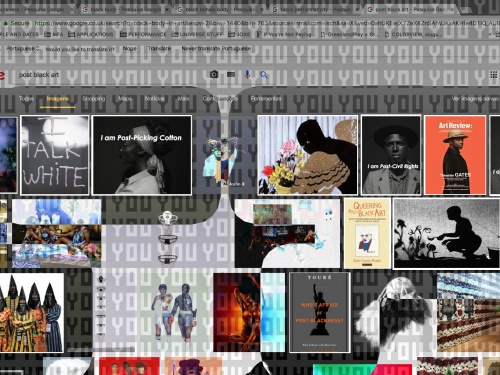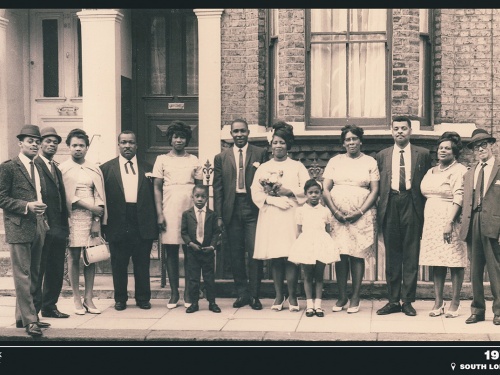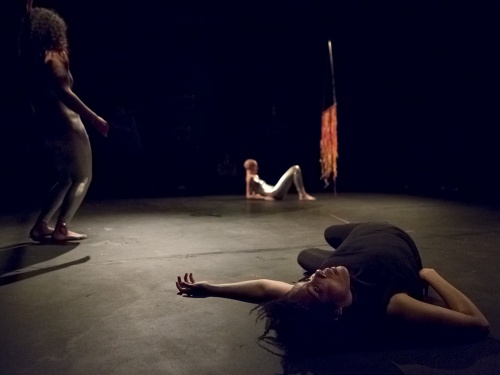Skin Deep: Race, 'Post-Race' and Cyborg Futures
Skin Deep is a multi-media platform that amplifies voices of colour through the discussion of race and culture. Their upcoming print edition, IMAGINING 2043, is its latest manifestation. Their work explores themes of climate, gender, race, exotification, borders, migration and all things speculative.
On 23 July they are hosting a session at CTRL: Reprezent x ICA entitled Race, ‘Post-Race,’ and Cyborg Futures which will touch on some of the themes explored in this issue. The talk has purposefully been titled in a way to make us question what “post-race” actually means and entails, and more importantly, whether it is desirable at all. Ahead of the event, co-founders Anu Henriques and Lina Abushouk write about their aims for Skin Deep, the importance of collectives and how opening space for re-imagining the future can interrogate and reshape dominant narratives in the present.
These days, it is easy to believe that technology provides the solution to all problems, and that by becoming “cyborg”, differences that are rooted in the body, such as race, gender and disability, will no longer be a basis for discrimination. The realm in which such solutions are typically conjured up are speculative writings and science fiction, both of which are aesthetic and conceptual movements that have historically been White dominated.
"A “post-race” future is an easy solution conjured up by a dominant culture in search of a quick fix."
It’s why imagining a future in which John Boyega is Stormtrooper FN-2187 (or Finn for short) is still controversial in 2016. Our hopes and aspirations for the future are not universal; they are a product of our unique and subjective experiences. A “post-race” future is an easy solution conjured up by a dominant culture in search of a quick fix to a problem that necessarily has material consequences and requires recognition of past transgressions. It’s why it matters who is doing the imagining.
For those of us on the margins, imagining becomes an endeavour intimately connected to social justice issues. We speculate in an attempt to realise the reality that we want, and to complicate the reality we inhabit. Walidah Imarisha writes in the introduction to the short story collection Octavia’s Brood, “Whenever we try to envision a world without war, without violence, without prisons, without capitalism, we are engaging in speculative fiction. All organizing is science fiction.” To write ourselves into the future on our own terms is a radical and crucial task. It is necessary to be deliberate and to think critically about the possibilities the future might hold for us and how we can work towards that now.
"It matters who is doing the imagining."
Our print publication is just one manifestation of the work we do. We’re all about bringing these discussions on race and culture into the real world. To do that we bring together collectives of colour so we can link up, have face-to-face dialogue, showcase work, share methods, get feedback, pool resources and create. We have also learnt the importance of calling on older generations for support and resources, which gives us the freedom to put our energies into creating work and establishing spaces using our own methods and styles.
Something worth considering is that the majority of the work that we, and collectives like us do, is free. We have little to no funding, yet we are continually working hard to innovate, to find new ways to produce dope work and get it out to a worldwide audience – all while keeping it fresh, accessible, not compromising on our values, and prioritising the lives, narratives and aesthetics of people of colour.
"We speculate in an attempt to realise the reality that we want, and to complicate the reality we inhabit."
And that is damn hard work. So meeting and working with other collectives provides a motivational boost for us to continue to do the work we’re doing. If we’re talking about making change and unbalancing structures, we gotta start from the roots. To do that, we need to connect and support each other. So, if you have ideas—online or offline—and want to collaborate, please get in touch. In the meantime, come think, feel and share in our conversation at the ICA. ■
Skin Deep's workshop Race, ‘Post-Race’ and Cyborg Futures is on 23 July at 6pm.
Join Skin Deep for the launch of IMAGINING 2043, which will take place at the Free Word Centre in Farringdon on Thursday 28th July 2016. The event is free and all are welcome.








